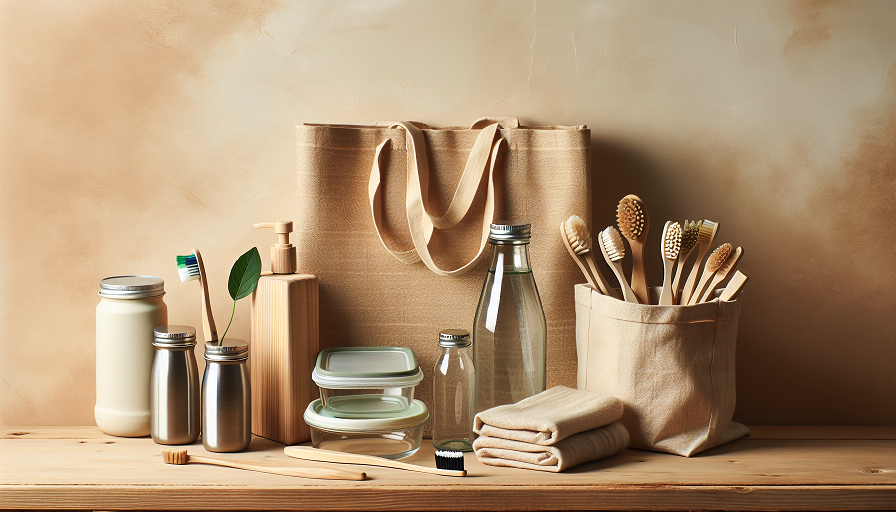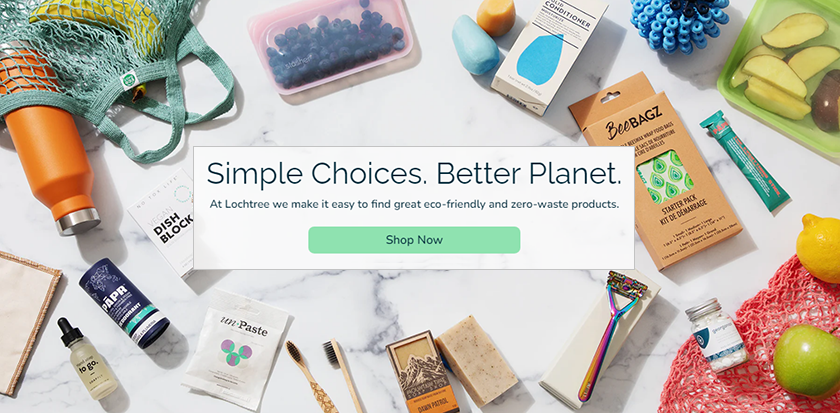
The kitchen is one of the biggest waste-generating spots in any home, but it’s also one of the easiest places to start making sustainable swaps. From plastic wrap to single-use dish sponges, the items we rely on in the kitchen can often be replaced with eco-friendly, reusable alternatives that help cut down on waste and make cooking and cleaning a bit more intentional. Here are some zero-waste essentials to help you kick-start a more sustainable kitchen.
Contents
- Say Goodbye to Plastic Wrap and Hello to Beeswax Wraps
- Reusable Silicone Food Bags: A Smart Swap for Plastic Ziplocs
- Swap Out Paper Towels for Cloth Towels or “Unpaper” Towels
- Compost Bin: Turning Food Scraps into Garden Gold
- Ditch Disposable Sponges for Compostable or Reusable Options
- Glass Jars and Containers: A Zero-Waste Storage Solution
- Making Zero-Waste a Kitchen Habit
Say Goodbye to Plastic Wrap and Hello to Beeswax Wraps
Plastic wrap is convenient but short-lived and single-use, making it one of the biggest kitchen offenders. Enter beeswax wraps, the eco-friendly alternative that molds around your food and containers to keep things fresh without the plastic. Beeswax wraps are reusable, washable, and naturally compostable when they’re worn out.
Using Beeswax Wraps in Place of Plastic
Beeswax wraps cling just like plastic wrap, but they also let your food breathe, which keeps it fresher longer. Use them to cover bowls, wrap sandwiches, or save cut fruits and vegetables. If you need to clean them, a quick wash with cool water and mild soap does the trick.
Making Beeswax Wraps Last
To keep them in good shape, avoid using them for raw meats and hot foods, and never wash them in hot water. With the right care, a single set of beeswax wraps can last up to a year, making it a sustainable investment that pays off in both savings and environmental impact.
Reusable Silicone Food Bags: A Smart Swap for Plastic Ziplocs
Most kitchens go through countless plastic bags for storing leftovers, freezing foods, or packing snacks. Silicone food bags are a fantastic zero-waste replacement for Ziplocs and other plastic bags. They’re durable, heat-resistant, and versatile enough to go from freezer to microwave to dishwasher.
Why Silicone Bags Are Worth It
Silicone bags work well for a range of uses. You can use them to store anything from sliced veggies to soups without worrying about leaks or freezer burn. They’re also ideal for meal prepping, making it easy to store ingredients in the fridge or freezer until you’re ready to cook.
Caring for Your Silicone Bags
These bags are dishwasher-safe, but to extend their life, consider hand-washing them, especially if they held greasy foods. Air-dry them to avoid any lingering moisture, and store them in a way that reminds you to reach for them instead of disposables.
Swap Out Paper Towels for Cloth Towels or “Unpaper” Towels
Paper towels are a kitchen staple, but they’re also incredibly wasteful. By switching to reusable cloth towels, you’ll save money and reduce your waste significantly. Cloth towels are washable, absorbent, and often more effective than their paper counterparts.
Using Cloth Towels for Everyday Cleaning
Cloth towels can handle everything from spills to drying dishes and even cleaning countertops. Keep a small stack handy so they’re easy to reach, and place a dedicated bin under your sink for dirty towels, so they’re out of sight until laundry day.
Maintaining Your Cloth Towel Routine
To make this switch stick, get into the habit of washing your towels weekly or as needed. If you’re feeling crafty, you can also cut up old T-shirts or fabric scraps to use as cleaning rags, giving old textiles a second life in the kitchen.
Compost Bin: Turning Food Scraps into Garden Gold
Instead of throwing away food scraps, a compost bin lets you turn them into nutrient-rich compost that benefits your garden or potted plants. Many kitchens generate a lot of compostable waste, from veggie peels to coffee grounds, so adding a compost bin is a natural fit for a zero-waste kitchen.
Choosing a Kitchen Compost Bin
Compost bins come in various sizes and styles, from small countertop versions to larger outdoor setups. Many have charcoal filters to keep odors in check, making them easy to use even in small apartments. Choose a size that suits your needs, and empty it regularly to keep things fresh.
What to Compost (and What to Avoid)
- Good to compost: Fruit and veggie scraps, eggshells, coffee grounds, and paper towels without chemicals.
- Avoid: Meat, dairy, and oily foods, as these attract pests and don’t break down well in compost.
Once you get the hang of it, composting becomes second nature, and your kitchen waste turns into something valuable instead of trash.
Ditch Disposable Sponges for Compostable or Reusable Options
Disposable kitchen sponges may be convenient, but they’re typically made of synthetic materials that aren’t biodegradable. Reusable and compostable options, like cellulose sponges or natural scrubbers, are eco-friendly choices that can handle all the scrubbing without the waste.
Using and Caring for Compostable Sponges
Cellulose sponges can be composted when they’re worn out, making them a great alternative to traditional sponges. Rinse them after each use, and let them air dry to avoid odors and bacteria buildup. With proper care, they’ll last weeks or even months.
Trying Out Dish Brushes or Natural Scrubbers
If you prefer something a bit tougher, wooden dish brushes with replaceable heads or natural loofah scrubbers can be great alternatives. They’re durable, biodegradable, and effective on tough dishes and cookware.
Glass Jars and Containers: A Zero-Waste Storage Solution
Instead of using plastic containers or disposable bags for storage, glass jars and containers are perfect for a zero-waste kitchen. They’re sturdy, non-toxic, and allow you to see exactly what’s inside, which makes them great for organizing dry goods, leftovers, and even meal preps.
Getting the Most Out of Your Glass Containers
Glass jars can store anything from pantry staples like rice and pasta to fridge items like sauces and leftovers. Reuse jars from store-bought foods like pasta sauce or jam—just clean them out and remove the labels, and they’re good to go.
Why Glass Works Better Than Plastic
Unlike plastic, glass doesn’t stain or absorb odors, which means your jars won’t smell like last week’s spaghetti sauce. They’re also dishwasher-safe and freezer-friendly, making them a versatile and eco-friendly choice for storing all kinds of foods.
Making Zero-Waste a Kitchen Habit
Switching to a zero-waste kitchen doesn’t mean you have to overhaul everything all at once. Start with one or two swaps that feel manageable, and build from there. Every reusable item you add helps reduce waste and brings you closer to a sustainable, clutter-free kitchen. Before long, these zero-waste essentials will become staples you can’t imagine cooking or cleaning without. And remember, it’s not about perfection; it’s about progress. Each swap is a small victory for the planet and your home.

